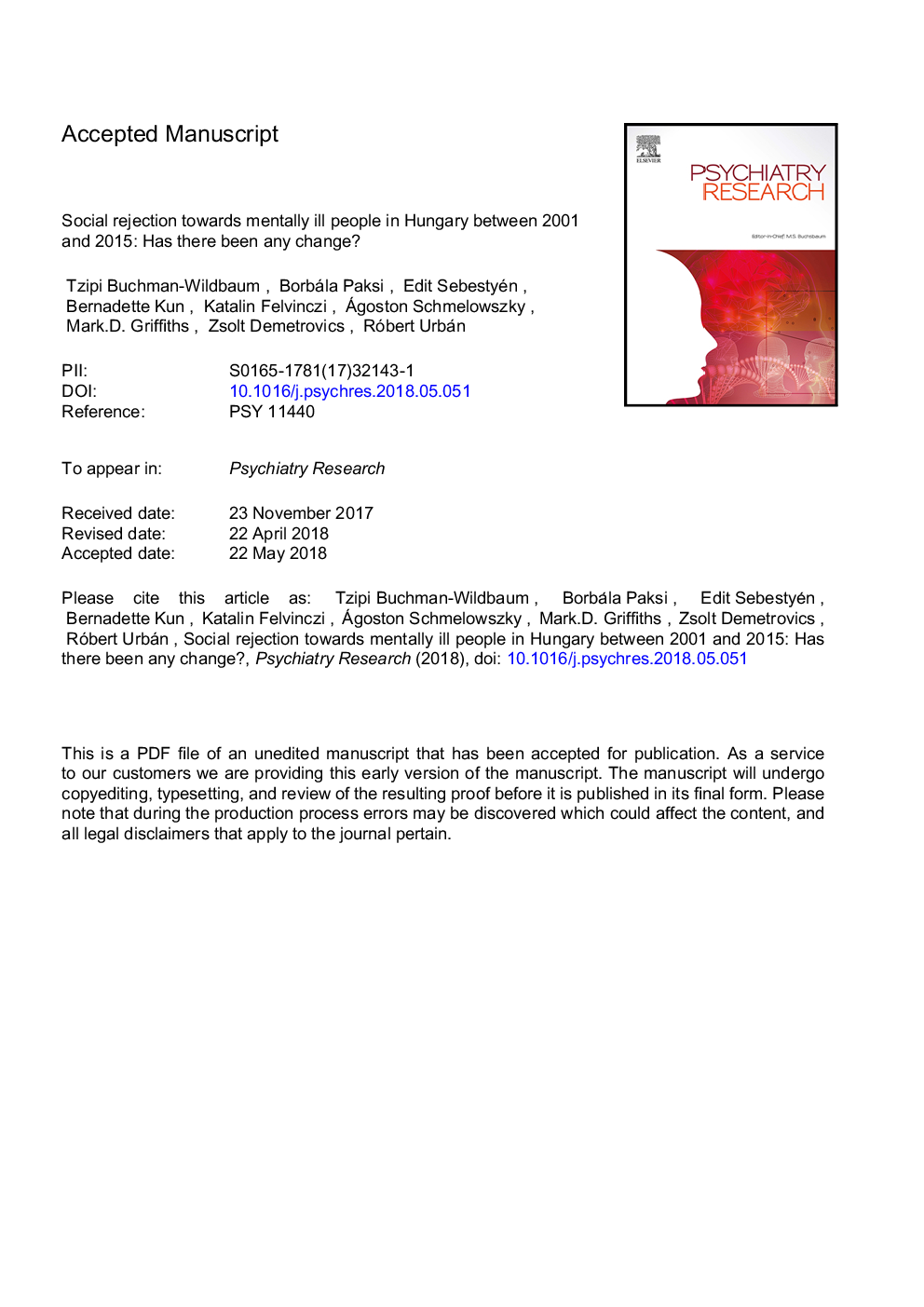| Article ID | Journal | Published Year | Pages | File Type |
|---|---|---|---|---|
| 6811173 | Psychiatry Research | 2018 | 32 Pages |
Abstract
Despite the improving mental health literacy of the public over recent years, people's attitudes towards people with the diagnosis of mental illness do not appeared to have changed. Long-term studies are scarce and mainly limited to Northwestern Europe. Given that no study has ever been carried out in Hungary, the present study examined attitudinal trends towards mentally ill people in the country, and evaluated its determinants using one item of the Social Distance Scale to assess social rejection towards others. National representative surveys of Hungarian adults were conducted in 2001, 2003, 2007 and 2015 (nâ¯=â¯7605). By means of interview and a self-administered questionnaire, socio-demographic information, preferences for social distance, and familiarity with mental illnesses were assessed. Trend analysis demonstrated that no meaningful change had occurred in the desire for social distance over a period of 15 years. Being a woman, having low education level, and lower familiarity with mental illnesses were all related to higher preferences for social distance. However, the explanatory power of these factors was very small (4.2%). As found in other countries, attitudes towards mentally ill people have not changed in Hungary. More effort is needed to understand better and overcome social rejection concerning mental illness.
Keywords
Related Topics
Life Sciences
Neuroscience
Biological Psychiatry
Authors
Tzipi Buchman-Wildbaum, Borbála Paksi, Edit Sebestyén, Bernadette Kun, Katalin Felvinczi, Ágoston Schmelowszky, Mark. D. Griffiths, Zsolt Demetrovics, Róbert Urbán,
